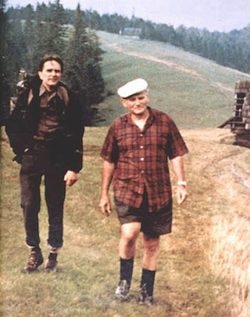I told you I would highlight the latest articles that are part of National Catholic Register’s Theology of the Body symposium. The latest comes from Fr. Brian Bransfield on how the Church can use the Theology of the Body, which was the product of a concerned pastor, more for effective pastoral practice:

Karol Wojtyla regularly escaped.
He escaped from not one, but two of history’s most terrifying totalitarian regimes: German Nazism and Soviet Communism. His method of escape was not to rally across the border with military might. Nor was it simply to negotiate footholds through diplomatic skill. Rather, Wojtyla escaped into the mountains of Poland with young married couples to discuss with them the nature and meaning of the human person and marriage as a communion of persons through the authentic gift of self.
The Nazis and Communists knew that the first step to destroy a people was to take away their cultural identity. Karol Wojtyla knew this too. The regimes outlawed discussion of the prime coordinates of culture: the meaning of the human person and marriage. That which the regimes forbade, the mountains invited.
The theology of the body was not born in a lecture hall or a library. It did not originate as a discourse of academics or theoreticians. It arose from the common conversation of ordinary parishioners with their concerned pastor. The theology of the body is, therefore, front-loaded with pastoral experience. The reflections that led to the theology of the body emerged on a grassroots level from Wojtyla’s own combination of reading, reflection and risk. As a result, it is ready-made for pastoral effectiveness.
Read more. Our pastors today could learn a lot from the way Karol Wojtyla tended to his flocks large and small.